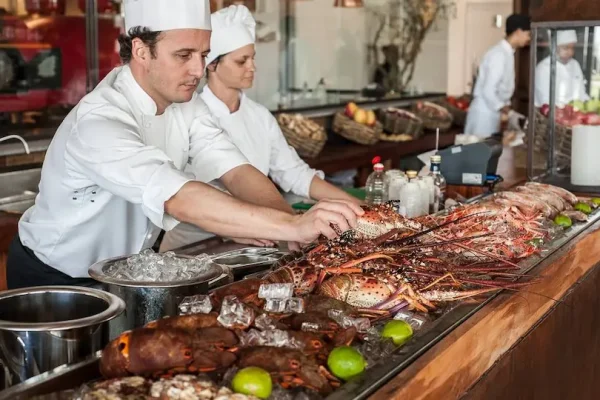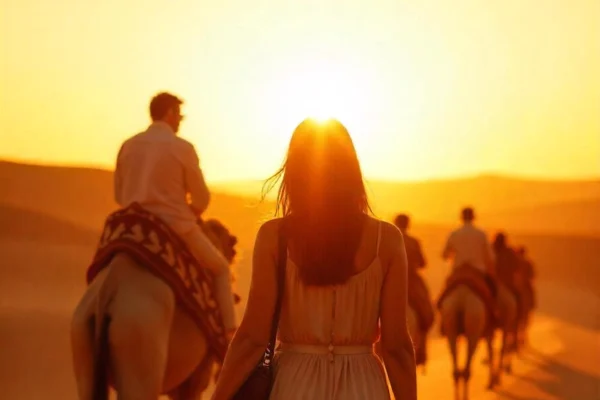In the vibrant heart of Brazil, the stage is set for a cultural extravaganza like no other – Rio Carnival 2024. As we look forward to this extraordinary event, let’s delve into the rich tapestry of international influences that infuse this carnival with unparalleled dynamism. Join Away Exotics on this journey as we explore how diverse cultures from around the world come together to create the magic of Rio Carnival. Rio Carnival 2024 reflects the rich and varied heritage of Brazil and its people, and how it welcomes and embraces new cultures and traditions. We will also give you some tips on how to enjoy the carnival to the fullest and make the most of your trip to the Marvelous City.
The Origins of Rio Carnival
Rio Carnival has its roots in the colonial era, when Portuguese settlers brought their own traditions of celebrating before Lent, a period of fasting and penitence in the Christian calendar. They introduced the entrudo, a playful ritual of throwing water, flour, mud and other substances at each other.
Over time, the entrudo evolved into more organized and elaborate forms of celebration, influenced by African slaves who introduced drums, dances and songs. The first samba schools emerged in the early 20th century, as a way for the marginalized black and mixed-race communities to express their identity and culture.
Samba’s Global Journey
At the heart of Rio Carnival is the pulsating rhythm of samba. Its origins, however, are rooted in Africa. With Away Exotics, you’ll witness firsthand how this Afro-Brazilian dance and music form evolved and fused with European and Indigenous Brazilian elements over centuries, creating the vibrant samba we know today.
The African Beat
Brazil’s connection to Africa is palpable, especially during Rio Carnival. The lively drumming, intricate costumes, and spirited dances bear the indelible mark of African heritage. Away Exotics invites you to immerse yourself in this captivating fusion of Afro-Brazilian culture, where the spirit of Africa dances in harmony with Brazil’s rhythms.
European Elegance
As we explore the international influences on Rio Carnival, we must acknowledge the elegant contributions from Europe. With Away Exotics, you’ll experience the grandeur of European-style masked balls and the intricate choreography of carnival parades. The elegant waltzes and masquerade masks are a testament to Brazil’s European connections.
Indigenous Inspirations
Brazil’s Indigenous communities have left an indelible imprint on Rio Carnival. From the elaborate feathered costumes to the enchanting folkloric tales, these influences are cherished. With Away Exotics, you’ll gain a deeper understanding of how the Indigenous heritage enriches the cultural mosaic of the carnival.
Asian Allure
Surprisingly, Asian influences also find their place in the carnival’s intricate fabric. Away Exotics invites you to witness the captivating fusion of Brazilian carnival and Asian elements, from stunning costumes to mesmerizing dance performances. It’s a testament to the carnival’s ability to embrace and celebrate diversity.
Rio Carnival is not only a showcase of Brazilian culture, but also a melting pot of international influences. Throughout its history, Rio Carnival has incorporated elements from different countries and regions, such as Europe, Asia, Africa, North America and Latin America.
Some examples of these influences are:
- The frevo, a fast-paced dance from the northeastern state of Pernambuco, inspired by European military marches and acrobatic movements.
- The maracatu, a rhythmic procession from the same region, derived from African coronation ceremonies and featuring large drums and colorful costumes.
- The marchinha, a humorous and satirical musical genre that originated in Rio de Janeiro in the early 20th century, influenced by French and Italian operettas.
- The axé, a fusion of Afro-Brazilian rhythms, reggae, rock and pop that emerged in Bahia in the 1980s and became popular nationwide.
- The funk carioca, a style of electronic music that originated in Rio de Janeiro’s favelas in the 1990s, influenced by Miami bass and rap.
- The sertanejo universitário, a modern version of country music that originated in the central-western region of Brazil in the 2000s, influenced by American country and pop.
In 2024, some of the themes that will be explored by the samba schools are:
- The history and culture of Japan, by Beija-Flor de Nilópolis
- The artistic legacy of Mexico’s Frida Kahlo, by Unidos da Tijuca
- The diversity and beauty of India’s Rajasthan, by Imperatriz Leopoldinense
- The musical heritage of Jamaica’s Bob Marley, by Portela
As we eagerly anticipate Rio Carnival 2024, it’s clear that this celebration isn’t just a local event; it’s a global cultural phenomenon. The international influences that converge during this carnival are a testament to Brazil’s spirit of inclusion and harmony. Little wonder, Rio Carnival is the Greatest Show on Earth.
 Away Exotics
Away Exotics



